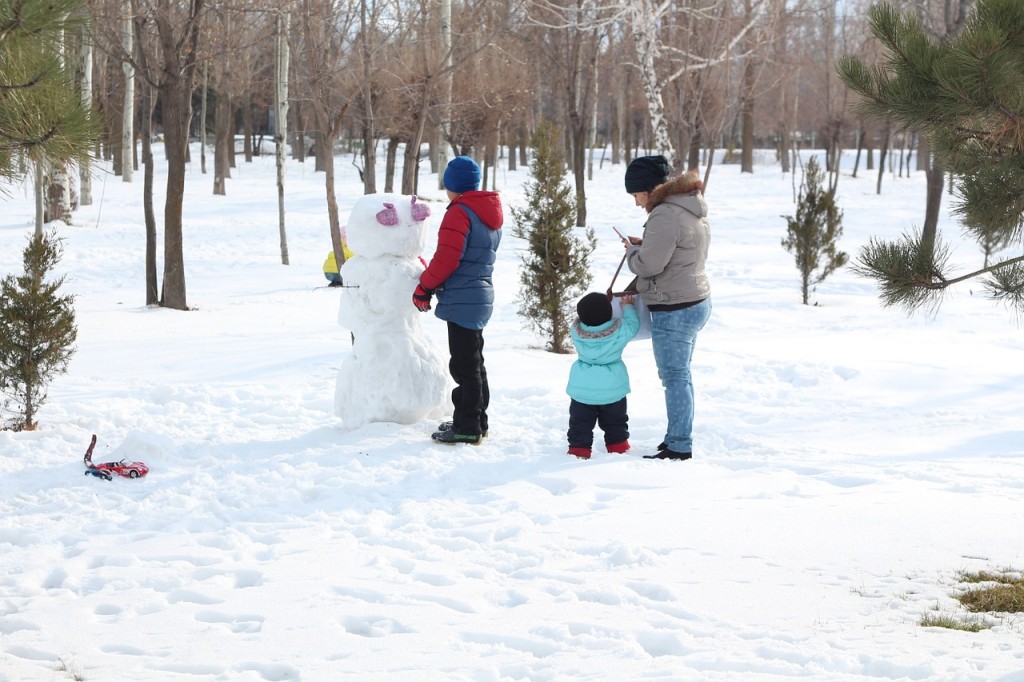How can we be happy at Christmas?
SHORT ANSWER
See your favourite people, help others, take a break, think and pay attention to your own wellbeing.
FULL STORY
It would be very nice to be happy at Christmas, and as children we are. But as adults that joy somehow eludes many of us.
We lose the ability to surrender to the moment, and become more sceptical about celebrations.
For years I’ve thought that so long as the children enjoy it, I don’t really need to bother much beyond that. But isn’t that rather a shame, even a bit of a cop-out?
So how do we as adults reclaim a bit of Christmas cheer?
What is the real problem here? Is it the work required to get it all together?
It’s probably an apocryphal story, but apparently a women’s magazine once ran an article entitled “670 ways to keep Christmas simple”. Says it all doesn’t it?
As a child, life is indeed simpler and as the centre of your own world the only thing that matters is the contents of your Christmas stocking.
But as an adult that’s not really enough – or should I say it’s too much?
Aren’t we all getting a bit uncomfortable at the landslide of stuff being given out, not just by ourselves but by others? And what toxic message of expectation is going along with that?
“Quality time”
Some say Christmas is really about the enjoyment of connecting with family and friends.
Well for me that’s not confined to Christmas. I would say close families don’t really need to make a massive statement about this in late December.
Nor do I subscribe to the idea of “quality time” – if it exists at all then it’s more likely to be appreciated on a wet Wednesday in March when your child has just fallen out with their best friend!
The wonderfully named Slough Happiness Project, which examined the lives of many of the citizens of Slough a few years ago, identified a few fundamentals where happiness is concerned.
The findings were as interesting for what was absent as for what was present.
So what would happen if we took those benchmarks for happiness and slapped them on to Christmas?
The happy buttons were as follows – at least two good relationships among family and friends, a safe community to live in, some sort of occupation (not necessarily paid), political freedom and democratic liberty, some sort of spiritual focus, and good mental health.
Intriguingly absent were lots of money and stunning good looks – two things some might have guessed would be at the top of the list.
And physical health did not feature either, with disabled people rating themselves just as happy as the able-bodied.
So to return to Christmas with a delicious Slough twist, how do we get happy over the festive hols?
1. Plan to see your very favourite people
With a big family, the trick is to arrange meet-ups by the beginning of December at the latest – before people’s plans get complicated.
Then plan a little portfolio of nicely informal get-togethers.
Seeing a lot of people in this way sounds very busy, but these are key relationships and worth taking time over.
Who was it who said that the secret of happiness was having “a large, loving, caring close-knit family in another city?”

2. Engage with the community
First of all, switch off the television and get outside.
In Charles Dickens’ classic novel A Christmas Carol, Ebenezer Scrooge says to the ghost of Jacob Marley: “But you were always a good man of business, Jacob”.
To which the ghost replies in distress: “Business! Mankind should have been my business! The common welfare was my business, charity mercy, forbearance and benevolence were all my business. The dealings of my trade were but a drop of water in the comprehensive ocean of my business!”
Wise words, but what can we do to demonstrate that mankind is our business?
Well, we could try to pay attention to the people around us even in the smallest and most anonymous ways.
For me, a wander around our lovely local town of Totnes in South Devon yields a few ideas for the ordinary citizen wishing to get involved in the community.
You can support cafes where any individual pays only as much or as little as they can afford.
The Totnes Act of Kindness invites you to pay anonymously for someone else’s coffee.
Tons of local initiatives encourage you to share any skills you might have with your fellow citizens (for free).
Plus others in my tribe have some neat ideas – acting as a collection point for shoeboxes full of cosmetics for families in need, or making some Christmassy pictures into cards with all proceeds to the Samaritans.
None of the above require much money nor any great amount of time or exposure to the world if you are shy of such things. But they really do make you feel happy.
3. Step away from your occupation
I agree with the wisdom of Slough that some sort of occupation is key to a satisfying life.
And as a stay-at-home-mum, I also agree that occupation does not necessarily mean paid employment.
As anyone who has done it knows, looking after even one child is an unpaid full-time job.
But occupation just means something that gives you a sense of purpose, progression and direction – employment, children, volunteering, stamps, marbles… whatever.
However, I suggest shelving this particular aspect of your life at Christmas (except of course the children, for which there is no known shelf!)
In Britain, we often work very long hours and although Noel Coward once observed that “work is more fun than fun”, I think we should give ourselves permission to stop for a moment or two.
Christmas could be a time to pause for a short reflection, relaxation, assessment, enjoyment – to pat the dog, watch a Disney film, have a coffee in bed or stay in the bath for an hour and a half.
After all, where can we live but in individual days?
I’ll finish this section with a quote from Rohinton Mistry in Family Matters: “Bring out your good dishes, put on your good clothes, no sense hoarding them… bring them all out, Roxana, and enjoy them.”
4. Think about a spiritual focus
I don’t have a firm Christian faith, but I do have some admiration for people within the church.
Giles Fraser for instance, an ebullient former cleric at St Paul’s who famously wondered what Christ would have thought of the demonstrations against capitalism on the steps of the cathedral. Would Christ have been inside the temple? Or out on the steps?
And Justin Welby, the Archbishop of Canterbury, says that whenever his own faith is shaken by events he is always able to connect to Jesus Christ the man, who history suggests definitely did exist and was a champion of his people.
You don’t have to believe in the Resurrection to give this idea of a real man some consideration.
Beyond the domain of Christianity or indeed any other religious faiths, I have two more suggestions for spiritual focus this Christmas.
One is the concept of humanism, namely that essential spirituality, goodness, positive thinking and vibrant living that can come from within the human soul.
Look up any of the works of AC Grayling for further enlightenment, or download his radio broadcast for Desert Island Discs on Radio 4.
He has a great deal of insight into the life well-lived.
And finally, what about the old pagan celebration of Yule?
This centres around the winter solstice on 21 December and is an ancient celebration welcoming the season and illuminating it with candles, bonfires and midwinter feasts. Well, why not?
5. Pay attention to your own wellbeing
The final observation of the Slough project identified good mental health as an important happiness indicator.
Presumably this does not mean we all have to man up, be terrifically mentally robust and brave and well-balanced all the time.
I prefer to think that it pointed to the need for developing resilience and learning about life and trying to promote stress-hardiness in ourselves and others.
So far so good, but can we apply this to Christmas specifically?
One suggestion is to use the occasion to demonstrate to our families and particularly to the very young ones that money, although undoubtedly useful, is not the main requirement for a contented life.
At the very least it should be the icing on the properly baked cake – to be used intelligently and to be shared.
If we all took that message on board and cast it forward to future generations then I think it would add significantly to the sum of happiness to come.
I hope this gives you food for thought. A very merry Christmas to you!






